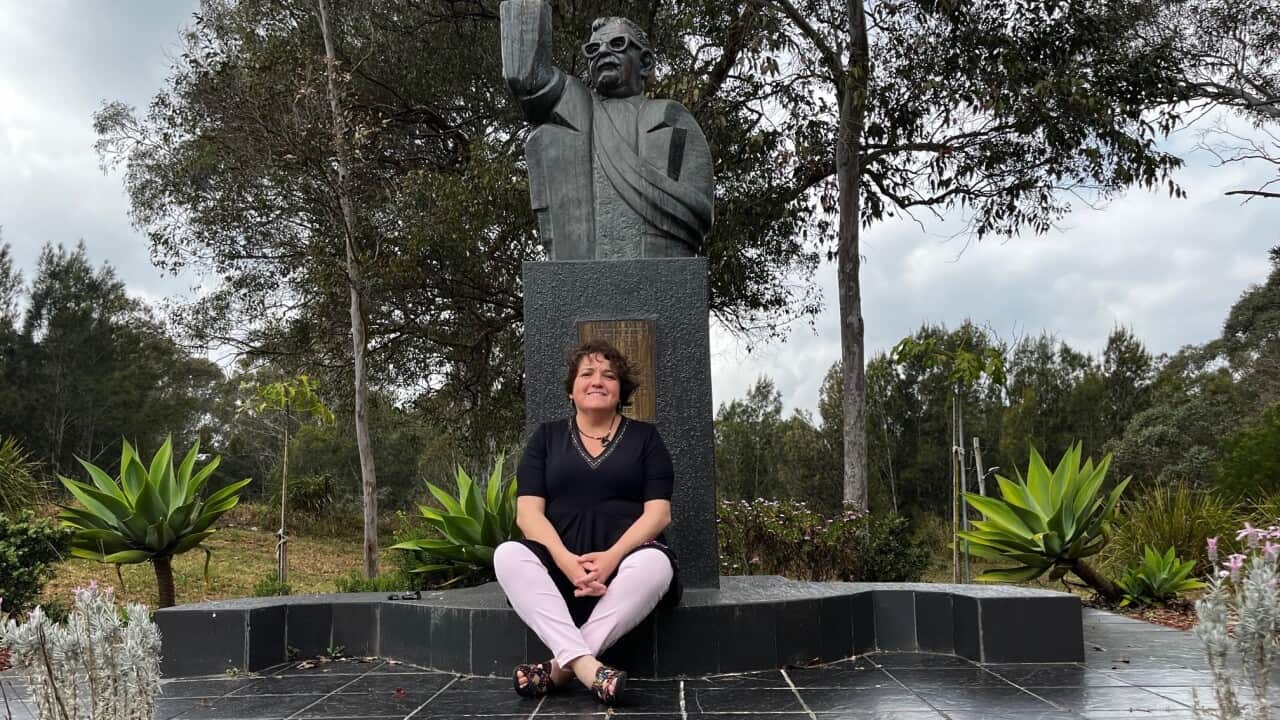Key Points
- The Chilean government has once again requested the Australian government extradite a Bondi nanny.
- Adriana Rivas was arrested by Australian police in February 2019 following an extradition request from Chile.
- Rivas, who is wanted on aggravated kidnapping charges, has launched a challenge in the Federal Court.
Adriana Rivas, a former nanny and cleaner in the Sydney suburb of Bondi, has launched a last-ditch appeal to block her extradition to Chile.
News of the appeal first emerged in mid-October, and her case was subject to a case management hearing at the Federal Court in Sydney on Thursday.
Rivas is accused of committing aggravated kidnapping in Chile nearly 50 years ago.
At the Thursday hearing, Rivas' lawyer Sean Baron Levi filed an appeal in court to prevent any prosecutor, minister or official from extraditing her.
Baron Levi insisted that one of the conditions of the extradition treaty — "the principle of double criminality" — was not met.

Adriana Rivas has been in prison in Australia since 2019 when she was arrested on an extradition request from Chile. Source: SBS News / Supplied
"On one occasion she was present while an individual was subject to non-coercive interrogation, nothing that would entice violence. That conduct could never satisfy the offence of kidnapping," he said, adding that would be the equivalent offence in Australia.
He also said Rivas had health issues that would prevent her extradition, although he did not provide details on this, saying Rivas had "requested that those matters remain confidential".
Trent Glover, the lawyer representing the Chilean government in the extradition process, said in court that they would wait to see the medical evidence provided by her legal team.
For now, the presiding judge has requested that Rivas' lawyer submit all relevant evidence regarding the Chilean’s health and the rest of the arguments, giving a deadline of 7 March for the attorney-general’s office to also present its arguments.
The next hearing is expected to take place on 10 March.
Adriana Rivas' fight against extradition
Years of denied appeals have left Rivas behind bars.
She in response to an extradition request from Chile, where she is wanted for multiple charges.
The charges relate to alleged crimes committed while she served in an intelligence agency under military dictator Augusto Pinochet, who ruled over Chile from 1973 to 1990.
Since 2019, Rivas has fought the extradition request in Australian courts. At each stage, courts have ruled that she should be returned to Chile.
The first extradition order was issued by a NSW local court in October 2020. This was .

The Federal Court held an initial hearing on Thursday as part of Adriana Rivas' last-ditch appeal to avoid extradition. Credit: SBS Spanish
In her final attempt to avoid extradition, Rivas has again brought the case before the Federal Court, which held an initial case management hearing on Thursday, at which the Chilean ambassador was present.
Also on Thursday, The Chilean government again asked the Australian government for the extradition of Rivas.
"Our country assigns a high priority to the extradition of Ms Rivas, both from the legal point of view and in the framework of the prosecution of serious violations of human rights, constituting crimes against humanity," the country's foreign ministry said in a statement.
"The Government of Chile hopes that this case, which has been going on for many years, will be resolved as soon as possible in order to provide a proper and timely response to the victims' families in their demand for justice."
What are the allegations against Adriana Rivas?
Rivas has been accused of being involved in the kidnapping and disappearance of seven members of Chile's communist party in the 1970s by the Chilean government.
She worked for the country's National Intelligence Directorate (DINA) between 1973 and 1977. In Chile, she was considered a centre of extermination and torture.
In an interview with SBS Spanish in 2013, she denied participating in any illegal activities but justified the use of torture, saying: "It is the only way to break people."
"It was necessary, just as the Nazis used it, and as in the United States, everyone does. It's the only way to break people because psychologically, there is no method," Rivas said in the interview.
She said she does not regret working for DINA.
"Someone middle class like me, with a middle education, do you think I would have had the opportunity to go to dinner at the embassies in Chile? Or riding in a limousine from here to there? The best hotels in Chile? To be in Portillo for a week, with everything paid, to travel for free?"
Rivas came to Australia in 1978 and has worked as a nanny and cleaner. She settled in Sydney's eastern suburbs, living in a public housing apartment block in Bondi.
She was arrested in Chile in 2006 during a trip to her hometown. Four years later, she was released on bail but left the country illegally to return to Australia.



